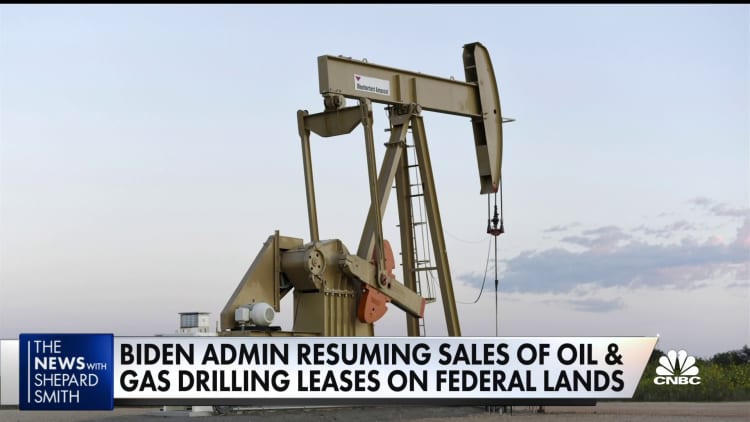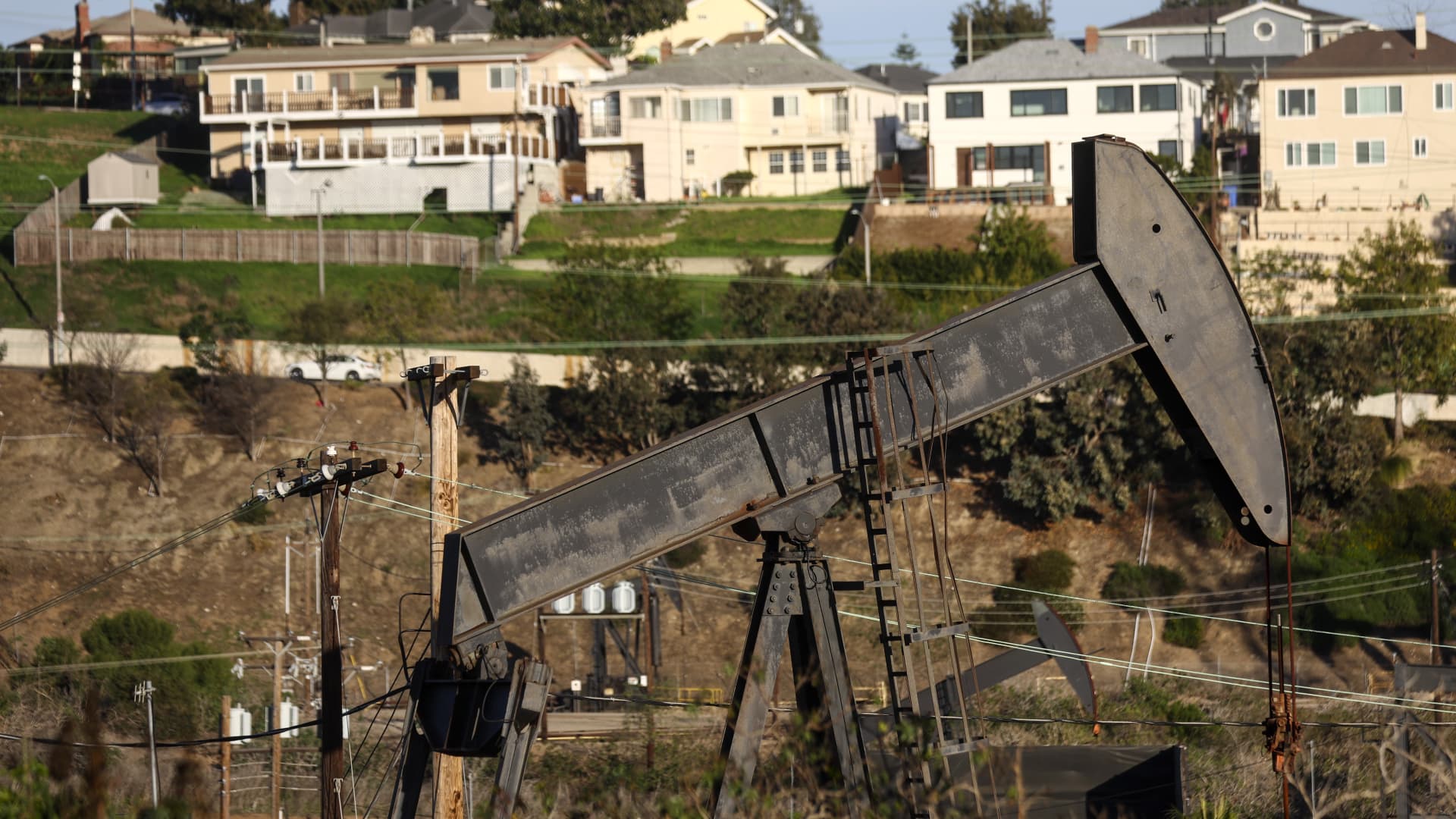An oil pumpjack operates in the Inglewood Oil Field on January 28, 2022 in Los Angeles, California.
Mario Tama | Getty Images
The Los Angeles City Council has voted to ban new oil and gas drilling and phase out existing wells over the next two decades, a historic decision that comes after years of complaints by residents about how pollution from nearby drilling has caused them health issues.
In a 12-0 vote, the council on Friday approved an ordinance it began drafting earlier this year that will immediately ban new extraction and shut down existing operations within 20 years. The decision to ban new drilling and decommission existing wells is one of the strongest environmental policies enacted in the state, and could pave the way for other cities around the country to adopt similar measures.
Historically, environmental legislation that has originated in California has often spread to other parts of the country, such as cleaner-emissions standards for cars in the 1970s. More recently, the state banned the sale of new gasoline-powered cars by 2035, and New York state soon followed suit.
There are 26 oil and gas fields and more than 5,000 active and idle wells in the city. Wells are spread out all over the city, including Wilmington, Harbor Gateway, Downtown, West LA, South LA and the Northwest San Fernando Valley.
The oil industry has largely opposed the city’s ban, arguing that phasing out production will make LA more dependent on foreign energy. The council said it would ensure oil companies are held accountable for adequately plugging and completing comprehensive site remediation within three to five years of shutting down production sites.
The city is also conducting studies to determine when oil companies in LA will be able to recoup their capital investments in drilling activities. If operators can recoup those investments before the 20-year timeline, the city could require those companies to shut down production even sooner.
More than half a million people in LA live within a quarter-mile of active wells that release harmful air pollutants like benzene, hydrogen sulfide, particulate matter and formaldehyde. Nearly one third of the city’s wells are located outside of drill sites between parks, schools and houses, and communities of color are disproportionately affected by the health impacts of those sites.
People who live closer to drilling are at greater risk of preterm births, asthma, respiratory disease and cancer, research shows. Living near drilling is also linked to weakened lung function and wheezing, according to a study published in the journal Environmental Research.
Stand Together Against Neighborhood Drilling, or Stand LA, a coalition of environmental justice organizations, said in a statement that the decision “signals that Black, Latinx and other communities of color currently living near polluting oil wells and derricks in South LA & Wilmington will eventually breathe easier.”

(Except for the headline, this story has not been edited by PostX News and is published from a syndicated feed.)

